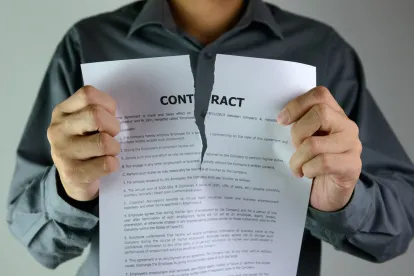In numerous states throughout the country, legislatures are moving to limit the use and enforcement of non-compete and other restrictive covenant agreements. Two such states, Maryland and Virginia, are seeking to curtail such agreements with regard to low-wage employees.
Virginia Senate Bill 1387
On January 17, 2019, the Virginia Senate introduced SB 1387, which would prohibit employers from “enter[ing] into, enforc[ing], or threaten[ing] to enforce a covenant not to compete with any low-wage employee.” A “low-wage employee” is defined as one who earns less than the average weekly wage of the Commonwealth,[1] and includes interns, students, apprentices, and trainees, whether or not they are being paid for their work, as well as some independent contractors.[2]
Senate Bill 1387 also would prohibit covenants not to compete that “restrict an employee from providing a service to a customer or client [whom] the employee does not initiate contact with or solicit[.]” A covenant not to compete is broadly defined as an agreement “between an employer and employee that restrains, prohibits, or otherwise restricts an individual’s ability, following the termination of the individual’s employment, to compete with the former employer.”
In addition to banning non-competes for low-wage employees, the bill would establish a private right of action for low-wage employees against any former employer (or other person) who attempts to enforce a prohibited agreement. An affected employee must commence the action within two years of the latter of: (1) the date the agreement was signed, (2) the date the low-wage employee learned of the agreement, (3) the date the employment relationship was terminated, or (4) the date the employer attempted to enforce the agreement. In addition to authorizing awards of injunctive relief, compensatory damages, liquidated damages and costs and attorney fees, Senate Bill 1387 would require courts to assess a civil penalty against culpable employers in the amount of $10,000 for each violation.
Additionally, all employers would be required to post a copy of the Bill (or an approved summary) ”in the same location where other employee notices required by state or federal law are posted.” Violations of this requirement would subject employers to penalties of escalating severity (written warning for first violation; civil penalty of up to $250 for second violation; and civil penalties of up to $1,000 for each subsequent violation).
On February 12, 2019, the Senate Committee on Commerce and Labor designated SB 1387 as “passed by indefinitely.” As of the current date, it is unclear whether the Committee will give it further consideration.
Maryland Senate Bill 328
On January 30, 2019, the Maryland Senate initiated a similar effort when it introduced SB 328. Less than four months later, after passing the Senate and House, the bill took effect without the Governor’s signature.
At first glance, MD 328 appears far more restrictive than VA SB 1387, as it declares all “noncompete [provisions] that restrict[] the ability of an employee to enter into employment with a new employer or to become self-employed in the same or similar business or trade” as “null and void as being against the public policy of the State.” However, the introductory section makes clear that the non-compete ban only applies “to an employment contract or a similar document or agreement concerning an employee who earns equal or less than […]$15.00 per hour; or […] $31,200 annually[.]” Although the Bill does not clarify whether it applies to restrictive covenants that fall short of prohibiting competition, such as customer non-solicitation covenants, it expressly excepts from its coverage any “employment contract[s] or similar document[s] or agreement[s] with respect to the taking or use of a client list or other proprietary client-related information.”
In contrast to VA SB 1387, which stalled out in committee, MD SB 328 passed both the House and Senate on April 5, 2019. Pursuant to Maryland’s Constitution, Governor Larry Hogan was required to sign or veto the bill by May 25, 2019, or else do nothing and allow it to become law automatically. Ultimately, Governor Hogan chose the latter option, and the Bill automatically became law, subject to an effective date of October 1, 2019.
In summary, while the Virginia Legislature has not acted to advance SB 1387, Maryland has enacted its own ban on non-competes for low-wage employees. We will continue to follow the Virginia bill and will update readers on any developments. Employers needing assistance in complying with the non-compete laws of the states in which they operate are encouraged to contact a Jackson Lewis attorney for further guidance.
[1] The average weekly wage is determined by the Virginia Employment Commission (the “Commission”) by adding the total wages (excluding wages of U.S. government employees) reported on contribution reports to the Commission for the 12-month period ending the preceding June 30 and divided by the average monthly number of insured workers and then divided by 52. In March 2018, for example, the average weekly wage in Virginia was $1,152.
[2] Low-wage employees include independent contractors who are paid at an hourly rate that is less than the median hourly wage for the Commonwealth of Virginia for all occupations as reported, for the preceding year, by the Bureau of Labor Statistics of the U.S. Department of Labor. In May 2017, for example, the median hourly wage for the Commonwealth of Virginia for all occupations was $19.13.






 />i
/>i
